In the field of construction and manufacturing, the EPS machine can play an increasingly important role in the future.
It can be applied in various industries, so let’s dive into this blog post to learn more about the EPS machine.
What Is EPS?
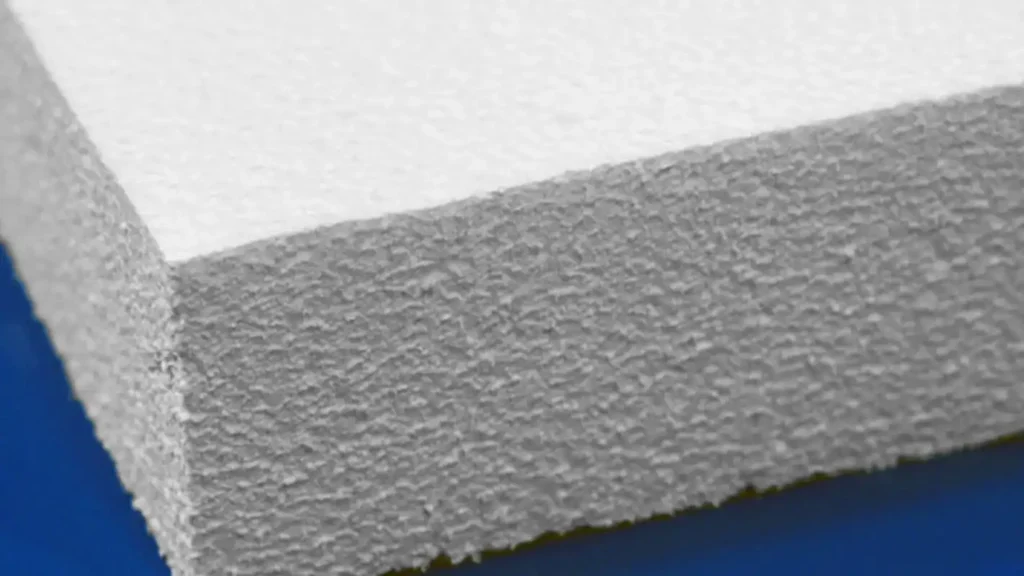
The term “EPS” typically refers to a type of insulation material known as Expanded Polystyrene (EPS), a type of foam material. EPS is a lightweight, rigid, closed-cell foam plastic that is commonly used for insulation in construction and packaging.
It possesses excellent and durable thermal insulation, unique cushioning and shock resistance, anti-aging properties, and waterproof characteristics. EPS material is widely used in the packaging of food and electronics, as well as in the construction insulation industry.
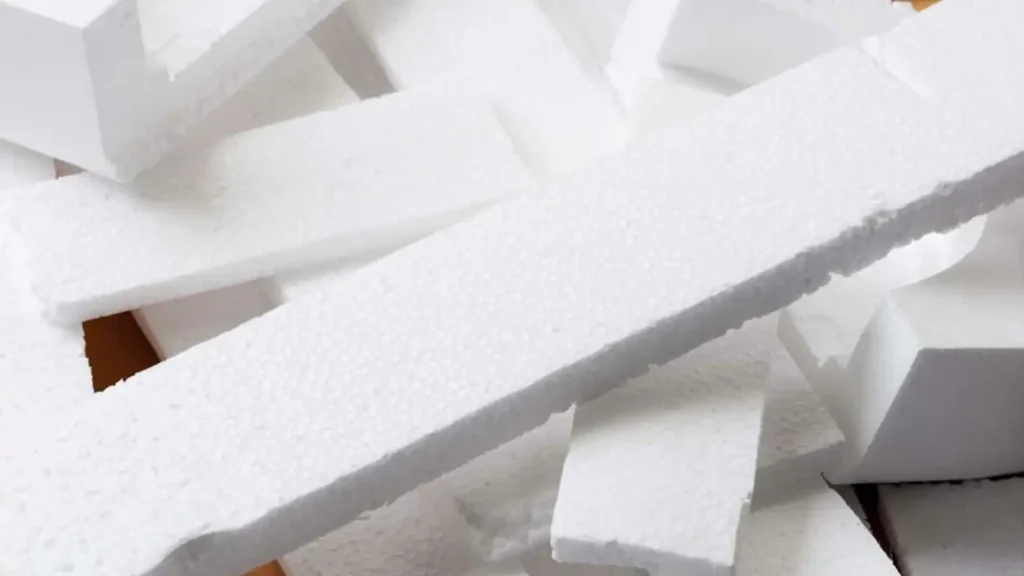
In the context of construction, EPS foam boards are often used as insulation material to improve the energy efficiency of buildings. These boards can be installed in walls, roofs, and floors to provide thermal insulation, helping to regulate temperature and reduce energy consumption.
EPS is created by expanding polystyrene beads with steam, forming a closed-cell structure that gives the material its insulating properties. It is a versatile material with various applications due to its lightweight nature, thermal insulation capabilities, and affordability.
What Is an EPS Machine?
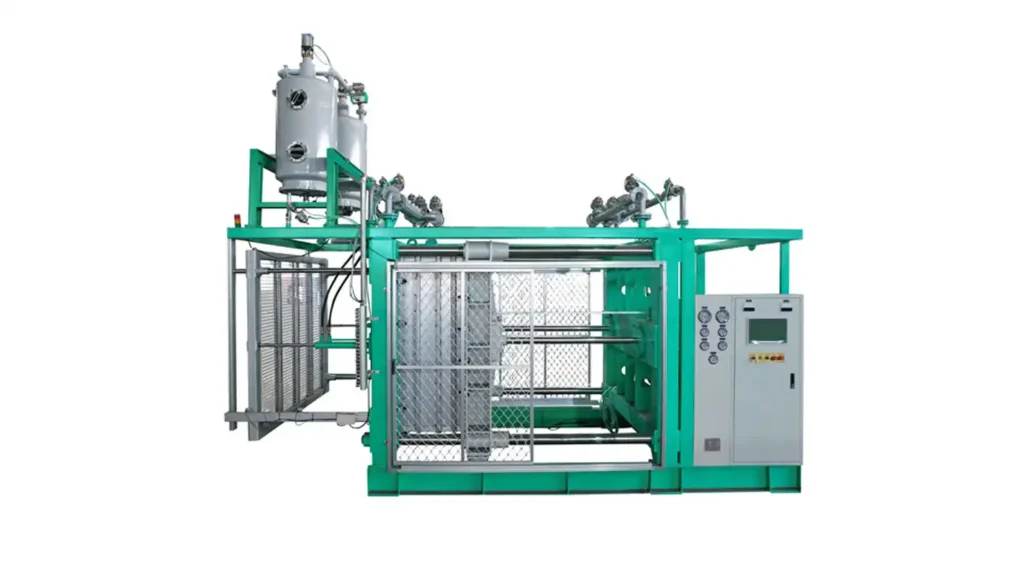
An EPS machine is a piece of equipment used in the manufacturing process of Expanded Polystyrene (EPS).
Expanded Polystyrene is a lightweight, rigid, closed-cell foam plastic that is commonly used for insulation, packaging, and other applications. The EPS machine is specifically designed to produce and shape EPS foam in various forms.
The EPS manufacturing process involves expanding polystyrene beads with steam, forming a closed-cell structure that gives the material its insulating properties.
The EPS machine typically includes components such as a pre-expander to expand the beads, a molding machine to shape the expanded material into desired forms (such as sheets or blocks), and cutting equipment to cut the formed EPS into specific dimensions.
These machines are used in industries where EPS is in demand, such as construction (for insulation materials) and packaging (for protective foam inserts). The EPS machine plays a crucial role in the production of EPS products, allowing for efficient and precise manufacturing of foam materials with the desired characteristics and dimensions.
Types of EPS Machine
EPS, or Expanded Polystyrene, machines refer to EPS manufacturing equipment used in the production and processing of expanded polystyrene foam. Expanded polystyrene is a lightweight and versatile material often used in packaging, insulation, construction, and other industries. There are various types of EPS machines designed for specific applications within the production process. Here are some common types:
EPS Pre-expander:
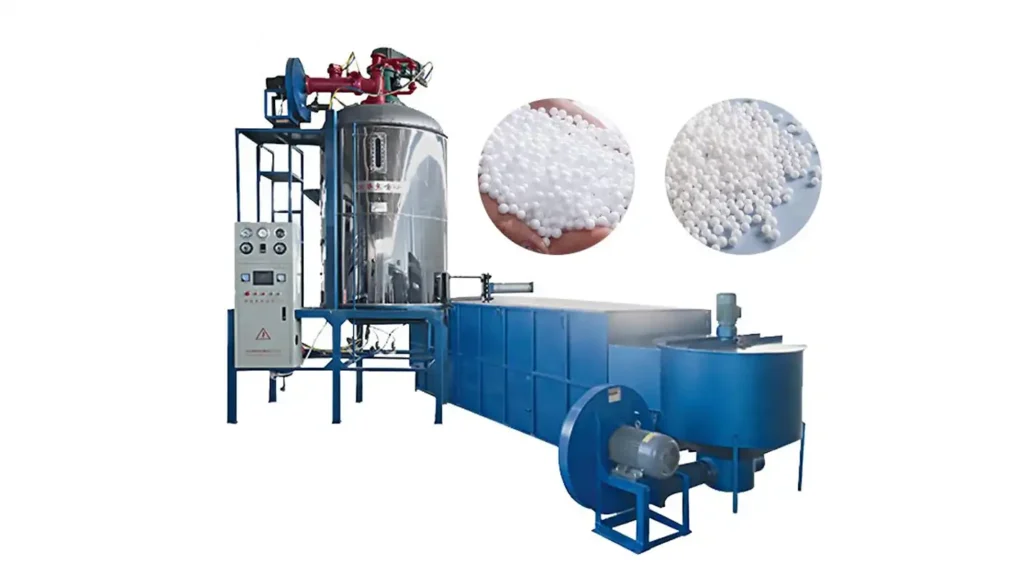
This machine is used in the initial stage of EPS production.
It pre-expands the raw polystyrene beads using steam, causing them to expand and become lighter.
The pre-expansion process ensures uniform bead size and density, which is crucial for the quality of the final product.
EPS Shape Molding Machine:
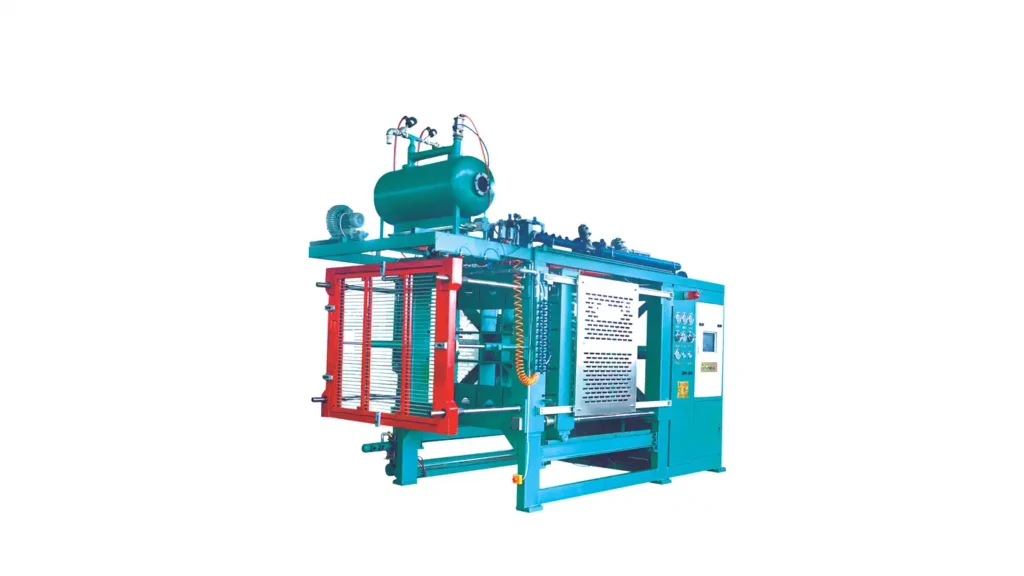
Once the beads are pre-expanded, they are molded into specific shapes using a shape molding machine.
This machine injects steam and molds the pre-expanded beads into the desired form.
The molds used in this machine can be customized according to the product requirements, making it versatile for various applications.
EPS Block Molding Machine:
This type of machine is used to shape and mold large blocks of expanded polystyrene.
These blocks can be further cut and shaped into specific forms for construction or other applications.
Block molding machines are commonly used for producing large volumes of EPS for insulation purposes.
EPS Cutting Machine:
After molding, the expanded polystyrene needs to be cut into specific shapes and sizes.
EPS cutting machines are used to precisely cut the molded foam into sheets, panels, or custom shapes as per the product requirements.
EPS Recycling Machine:
This machine is designed to recycle and process waste or scrap EPS material.
It typically involves a process of shredding, melting, and reforming the used EPS material into new blocks or products, contributing to sustainability and reducing environmental impact.
EPS Coating Machine:
In some cases, EPS products may be coated with a protective layer or surface finish.
The coating machine applies materials like plaster, cement, or other protective coatings to enhance the durability and appearance of the EPS products.
These are just a few examples of the types of EPS machines used in the production and processing of expanded polystyrene. The specific type of machine required depends on the intended application and the final product specifications.
How Does EPS Machine Work
The working process of an EPS (Expanded Polystyrene) machine involves several stages, from the initial preparation of raw materials to the final production of molded EPS products.
Here’s a general overview of how an EPS machine typically works:
Raw Material Preparation:
The process begins with the preparation of raw polystyrene beads, which are the primary material for EPS production. These beads are typically stored in silos.
EPS Pre-expansion:
The pre-expansion stage involves feeding the raw polystyrene beads into a pre-expander machine.
Steam is introduced to the beads, causing them to expand and become lighter. This pre-expansion ensures uniform bead size and density.
Cooling and Aging:
The pre-expanded beads are then cooled and aged. This step allows the beads to stabilize and achieve the desired characteristics before further processing.
EPS Shape Molding:
The pre-expanded and aged beads are transferred to a shape molding machine.
The machine injects steam and molds the beads into the desired shape using customized molds. This results in the formation of EPS products with specific designs and dimensions.
Vacuum and Cooling:
After shaping, a vacuum is often applied to remove any remaining steam or gases from the molded EPS product.
The product is then cooled to set its final shape.
EPS Block Molding (optional):
In some cases, especially for larger products or insulation blocks, the molded EPS shapes may undergo block molding. This involves molding the EPS into larger blocks for further processing.
Cutting and Shaping:
Once the molded EPS blocks or shapes are set, they are transferred to an EPS cutting machine.
The cutting machine precisely cuts the EPS material into sheets, panels, or custom shapes according to the product specifications.
Surface Coating (optional):
Depending on the application, some EPS products may undergo a surface coating process. This involves applying protective layers or finishes, such as plaster or cement, to enhance the product’s durability and appearance.
Packaging and Distribution:
The final EPS products are packaged and prepared for distribution to end-users or further manufacturing processes.
It’s important to note that the specific details of the EPS machine’s operation can vary based on the type of machine (pre-expander, shape molder, block molder, cutting machine, etc.) and the intended application of the final EPS products. Each stage in the process plays a crucial role in producing high-quality and customized EPS materials for various industries.
Advantages of Using EPS Machine
The use of EPS (Expanded Polystyrene) machines offers several advantages across different industries due to the unique properties and benefits of expanded polystyrene foam. Here are some key advantages of using EPS machines:
Lightweight:
EPS is an extremely lightweight material, making it easy to handle and transport. This characteristic is particularly advantageous in industries such as packaging and construction, where weight considerations are important.
Insulation Properties:
EPS has excellent thermal insulation properties, making it widely used in the construction industry for insulation in walls, roofs, and floors. EPS machines enable the production of custom shapes and sizes to suit specific insulation needs.
Versatility:
EPS machines can produce a wide variety of shapes and sizes, from simple packaging materials to intricate molded products. This versatility makes EPS suitable for diverse applications, including packaging, construction, and manufacturing.
Cost-Effective:
The production of EPS materials is cost-effective, both in terms of raw material and manufacturing processes. EPS machines can efficiently convert raw polystyrene beads into finished products, contributing to cost savings in various industries.
Recyclability:
EPS is recyclable, and EPS recycling machines can be employed to process waste or scrap EPS materials, reducing environmental impact. This sustainability aspect is increasingly important in today’s eco-conscious environment.
Shock Absorption:
EPS has excellent shock absorption properties, making it suitable for protective packaging in the transportation of fragile and sensitive goods. EPS machines can produce packaging solutions that provide cushioning and protect items from damage during transit.
Buoyancy:
EPS is buoyant and resistant to water absorption. This property makes it useful in applications such as marine and floating structures. EPS machines can produce buoyant elements for use in construction, marine, and other industries.
Customization:
EPS machines allow for the easy customization of products, enabling manufacturers to produce EPS materials with specific shapes, sizes, and properties tailored to the requirements of different applications.
Ease of Installation:
In the construction industry, EPS products are known for their ease of installation. Lightweight and easy to handle, EPS materials can be quickly and efficiently installed, reducing labor costs and construction time.
Chemical Resistance:
EPS exhibits resistance to many chemicals, making it suitable for various applications where exposure to chemicals or harsh environments is a consideration.
In summary, EPS machines contribute to the widespread use of expanded polystyrene foam by providing a cost-effective, versatile, and environmentally friendly solution for a range of industries, from packaging to construction. The unique properties of EPS make it a preferred choice for many applications, and the efficiency of EPS machines ensures the reliable production of high-quality EPS materials.
Applications of EPS Machines
EPS (Expanded Polystyrene) machines find applications across various industries due to the versatility, lightweight nature, and insulating properties of expanded polystyrene foam. Here are some common applications of EPS machines:
Packaging:
EPS is widely used for packaging materials, especially in the form of molded foam inserts or protective packaging. EPS machines can produce custom shapes to securely cushion and protect delicate items during shipping.
Construction Insulation:
EPS is a popular choice for insulation in the construction industry. EPS machines produce sheets, panels, and blocks used in walls, roofs, and floors to provide thermal insulation and energy efficiency in buildings.
Building Components:
EPS machines manufacture various building components, including architectural shapes, decorative elements, and lightweight panels used in the construction of facades and interiors.
Floatation Devices:
Due to its buoyant properties, EPS is used in the production of floatation devices, such as life jackets, buoys, and floating docks. EPS machines can shape the foam to meet specific buoyancy requirements.
Stage and Set Design:
The lightweight and customizable nature of EPS make it a preferred material for stage and set design in the entertainment industry. EPS machines produce intricate and large-scale props, sculptures, and backdrops.
Automotive Components:
EPS is used in the automotive industry for the production of lightweight components, including interior panels, headrests, and protective packaging for automotive parts during transit.
Horticulture:
EPS machines produce plant trays, seedling containers, and other horticultural products used in gardening and agriculture. The lightweight and insulating properties of EPS contribute to plant protection and growth.
Medical Packaging:
EPS is used for packaging medical equipment and devices due to its shock-absorbing properties. EPS machines can create custom inserts and packaging solutions for sensitive medical instruments.
Art and Sculptures:
Artists and sculptors use EPS as a sculpting material. EPS machines enable the creation of large-scale sculptures and artistic installations for public spaces, exhibitions, and events.
Coolers and Insulated Containers:
EPS is used to manufacture coolers and insulated containers for transporting perishable goods. EPS machines produce containers that help maintain temperature and protect products during shipping.
Architectural Models:
Architects use EPS for creating scale models of buildings and landscapes. EPS machines can accurately produce intricate architectural models that aid in visualizing and presenting design concepts.
Soundproofing:
The lightweight and acoustic insulation properties of EPS make it suitable for soundproofing applications. EPS panels produced by EPS machines can be used in walls and ceilings to reduce sound transmission.
These applications highlight the diverse uses of EPS in various industries, showcasing the adaptability and functionality that EPS machines bring to the manufacturing process. The ability to customize shapes and sizes makes EPS an ideal material for a wide range of practical and creative purposes.
Conclusion
Ready to take your EPS manufacturing to the next level?
Contact us today for a free consultation with our EPS machinery experts. We can help you identify the ideal equipment and strategies to achieve your production goals and maximize your return on investment. Let’s discuss how EPS manufacturing can empower your business success!
